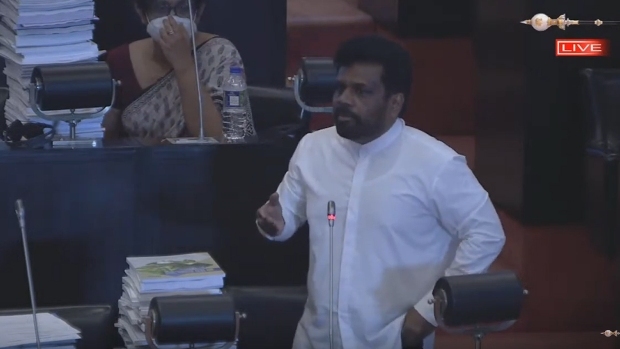Opposition, BASL express deep concern over COVID-19 webinar for judges
COLOMBO – A conference/webinar held on Friday (13) in Sri Lanka for magistrates on ‘matters relating to judicial proceedings in the context of the COVID-19 pandemic’ has drawn criticism from an opposition lawmaker as well as the Bar Association of Sri Lanka (BASL).
Raising the matter in Parliament on Tuesday (17), opposition MP and leader of the Janatha Vimukthi Peramuna (JVP), Anura Kumara Dissanayake, claimed that magistrates were compelled to attend the conference/webinar, while the BASL expressed concern that the event had allegedly sought to influence judicial orders.
Referring to a letter dated August 9, signed by the Secretary of the Judicial Service Commission, and addressed to all magistrates, Dissanayake said the secretary had made attendance of all magistrates compulsory.
“Section three of the letter states that failure to attend the conference will factor in annual salary increments, selecting for foreign training and in promotion to higher courts,” the MP said, questioning “Does this not influence the judiciary?”
Dissanayake claimed, citing reports, that while the magistrates who attended the conference had expected a discussion on the conduct of judicial activity through the COVID-19 crisis, what had transpired instead was a commentary on orders given by magistrates on the recent spate of protests in different parts of the country.
These remarks, allegedly made at the meeting, posed a threat to the judiciary and to the country’s democracy, the MP said, claiming that comments had been made to the effect that the magistrates’ decisions would have an impact on their careers.
When police arrested protestors and produced them in court requesting they be remanded, most magistrates had declined to do so. Dissanayake pointed out that in one instance an official of the Attorney General’s Department had asked that arrested protestors be remanded, but the magistrate had refused to do so looking at the available evidence, as per his powers.
“This is the independence of the judiciary. These orders of late have been taken up for discussion at this conference,” he said.
The MP claimed that speakers at the webinar had quoted provisions in the constitution in an attempt to convey to the magistrates that certain decisions made by with regard to the protests were wrong.
“Is influencing the judiciary this way justifiable? What democracy is this? What judicial independence is this?” said Dissanayake.
When the MP asked about the government’s position on the matter, Justice Minister Ali Sabry said the judicial service commission is an independent institution and neither the minister of justice nor the government can influence it.
“We don’t wish to influence it, and we never have,” said Sabry.
The minister asked for two weeks to respond to Dissanayake’s statement.
The BASL, meanwhile, said it is deeply concerned about the discussions that allegedly took place at the webinar.
Though a discussion on administration matters of the judiciary during a pandemic is most welcome, the BASL said in a letter addressed to the chief justice and members of the judicial service commission on Tuesday, such a discussion should not have any bearing on the manner in which judicial functions are discharged.
“It is our considered view that the contents of such a meeting/webinar should not leave the impression, either in the mind of the participating judges or the public, that it has any bearing on the manner of the discharge of judicial functions or that it was intended to have the effect of stifling any judicial officer from the independent exercise of his or her judicial mind and discretion in a particular case based on the law and accepted principles of judicial interpretation,” the BASL said.
“In these circumstances, it is the view of the BASL that as there is a strong possibility of an impression being created, if not already created, in the minds of judicial officers and of the public, that the above meeting webinar was conducted with the aim of impressing upon judges to make particular orders in a particular manner, such an impression should be immediately addressed and if necessary be corrected, in the public interest and the interests of all those tasked with the administration of justice,” it added.
-economynext.com


